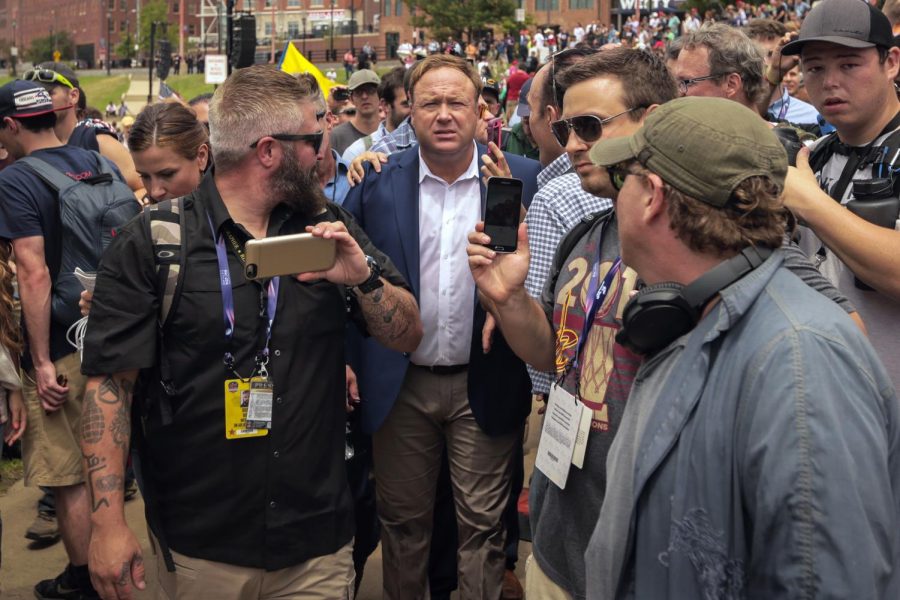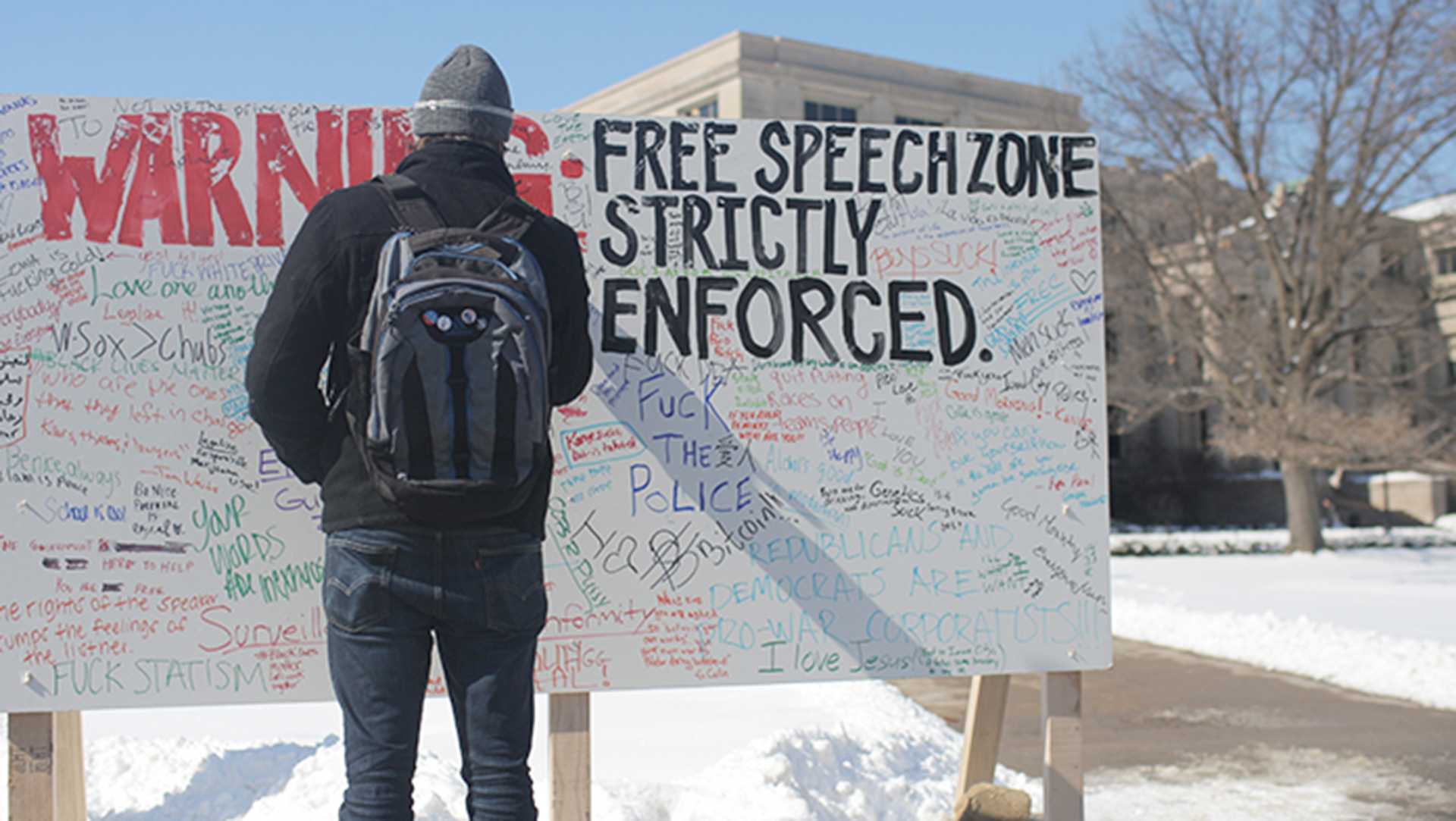Weigel: Banning Infowars: A step in the right direction
Many social-media platforms have recently decided to ban the content of conspiratorial Infowars talk-show host Alex Jones. This calls into question where we draw the line between free speech and unacceptable rhetoric.
InfoWars Host Alex Jones outside of the Republican Convention in Cleveland on July 18, 2016.
August 26, 2018
Should companies be able to ban content they deem offensive and/or outrageously incorrect? Yes, I believe they should, because when companies ban ludicrous content, they send a message to the general public about what is acceptable and unacceptable. In turn, actions such as these create and reinforce our societal norms.
Therefore, I commend the bevy of social-media platforms — pretty much all but Twitter — that recently took the initiative to ban content from the notoriously conspiratorial Infowars radio/online talk show led by Alex Jones.
Don’t get me wrong; I’m all for free speech and free expression. In fact, I adhere to the precept, “Give me liberty, or give me death,” famously uttered by Patrick Henry during the Second Virginia Convention on March 23, 1775. Liberty, also known as freedom, is a fundamental tenet of the American way of life. Relative to other world powers such as China, Russia, Germany, India, etc., the U.S. bestows its citizens with a tremendous amount of liberty.
For example, just look at all of the liberties guaranteed in the Bill of Rights. With just the First Amendment, Americans are given the freedom to openly express their views, to peacefully assemble, to petition for what they believe in, and to have non-state-run media outlets. What is important is that all of these negative rights — freedom from government infringement — are guaranteed to all citizens.
However, the world today is far different from when the Bill of Rights was written. There is no denying that the spread of information today has exceeded the Founding Fathers’ wildest dreams. In the 1770s, it took a tremendous amount of time and effort to promulgate the news. Thoughts had to be transcribed and copied by hand. Then they had to travel by horse.
Today, information can be shared in an instant thanks to technology and interconnectedness. In today’s world, misinformation, propaganda, and conspiratorial information spread like wildfire. Ergo, over the years, the Supreme Court has decided that in certain instances, free speech can be curtailed. For instance, we all have the right to say whatever we want, but if we are caught lying in court, we can be charged with perjury. And if you choose to yell “fire” in a crowded theater for no reason, you can be held liable for any injuries that might be incurred in the chaos that is likely to ensue as patrons make a mad dash to find a fire exit. So, while speech is free in America, as the preceding two examples highlight, there can be consequences.
Thus, when it comes to conspiracy theorists such as Infowars’ Jones, he does have the freedom to promote his head-scratching conspiracies. But given the precedents laid out by the Supreme Court, there is ample justification for private enterprises to censor Jones. Private companies have every right to draw their own line on what is acceptable and unacceptable speech, just as we as individuals have the freedom to personally decide what is and isn’t acceptable speech.
In the eyes of many popular social-media platforms, fabricating offensive falsehoods to advance a political agenda is where the line is drawn. You can agree or disagree with these companies’ actions, yet there is no disputing that it’s perfectly within these companies’ prerogative to draw the line on what is and isn’t acceptable.
Hopefully, we as a society can heed the decisions of these social-media platforms in condemning the outright lies of Jones and other absurd conspiracy theorists. After all, wildfires only thrive when there is something fanning the flames. What these social-media platforms have done is remove the fuel from the fire.




